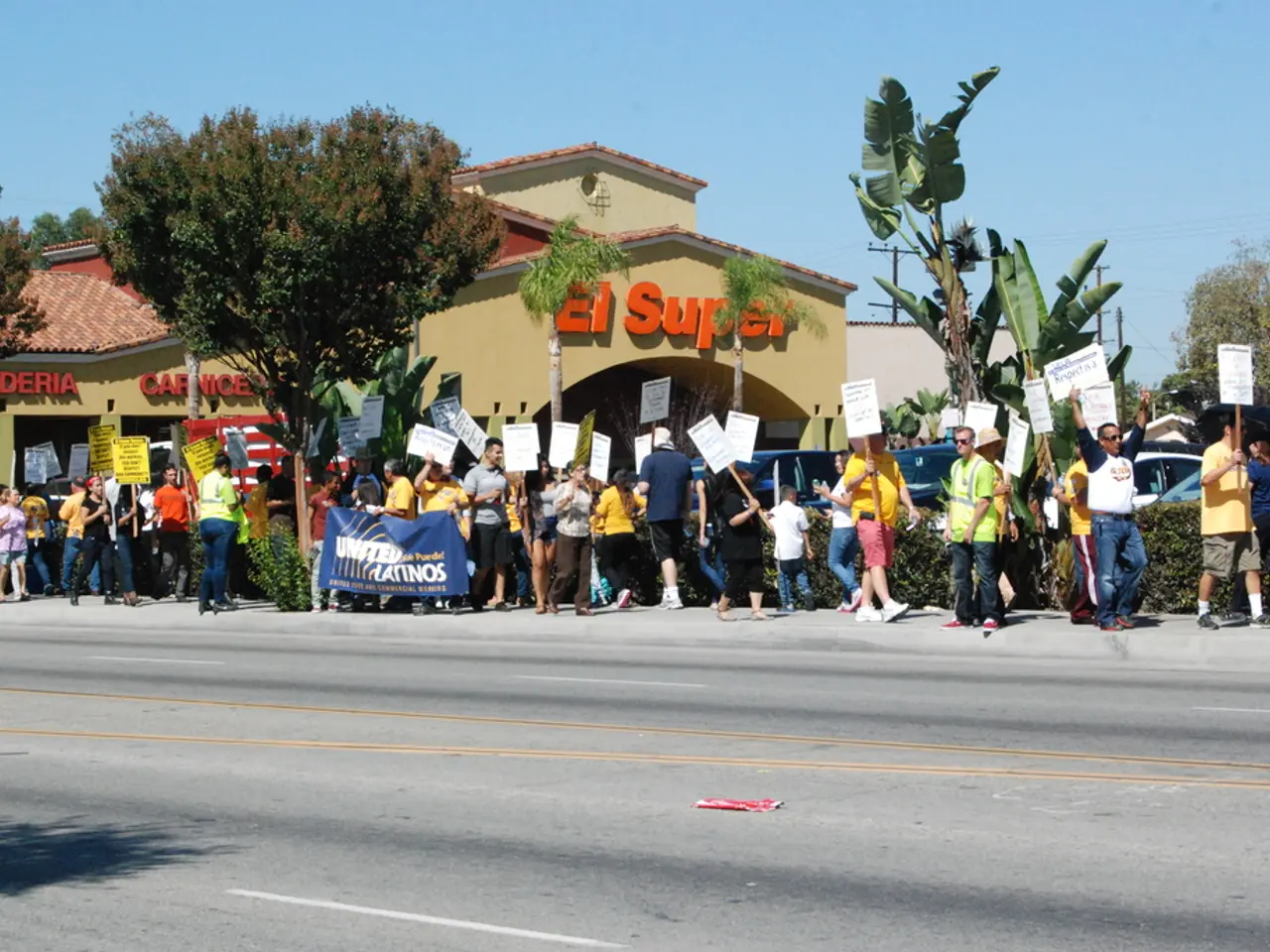Differentiating between black-red and standard traffic lights: an examination of their contrasts
After a hundred days in power, the black-red coalition government in Germany, led by Chancellor Friedrich Merz (CDU/CSU), is facing significant challenges in maintaining a harmonious partnership with their partner, the SPD.
Immigration Policy Disagreements
Former Chancellor Angela Merkel's criticism of the coalition's immigration stance, perceived by some as adopting far-right positions on rejecting asylum seekers at the border, has caused a rift between the two parties. The SPD tends to uphold asylum seekers’ rights and fair procedures, while the CDU-led Interior Ministry insists on stricter border rejections, causing friction within the coalition.
Judicial Appointments Dispute
The appointment of new judges to the Constitutional Court has been a contentious issue, with CDU parliamentary leader Jens Spahn failing to unite his ranks and the SPD’s nominee facing opposition. The dispute has been further complicated by right-wing populist criticism, exposing intra-coalition disagreements on constitutional matters.
Communication and Trust Issues
Polls show widespread dissatisfaction with the government and particularly with Chancellor Merz's communication style, with only about 28% approving government performance and 26% trusting Merz. This gap in public support adds pressure on coalition partners to align and deliver.
Economic and Infrastructure Challenges
While the coalition has announced major investments in infrastructure and digitalization, many citizens perceive progress as slow and bureaucracy as a significant hindrance. Economic concerns amid global uncertainties are a battleground for policy priorities between the parties, with calls for a faster pace of infrastructure expansion.
Cultural Policy Differences
The CDU's Minister of State for Culture’s attempt to ban gender-inclusive language in public institutions has sparked criticism, reflecting deeper ideological divides with the SPD, typically more progressive on social and cultural issues.
Lack of Unity Among MPs
There is a lack of common spirit beyond the top level of the coalition, with MPs often speaking unfavorably about each other.
Unresolved Issues and Future Challenges
The resolution of the judges' dispute before the next round of elections in Karlsruhe in September is considered open, and a failed vote would be difficult to imagine. The Bundestag has shown agreement with the SPD, Greens, and Left on these issues.
The failed election of new judges for the Federal Constitutional Court is another "traffic light moment" for the black-red coalition, with the Union unwilling to support the SPD candidate. The electricity tax issue has caused a "traffic light moment" for the coalition, with fierce protest from the Union and pressure from ministers-presidents.
Wider Financial Gaps and Coalition Strain
The Union and SPD face problems of a much greater scale than the election of constitutional judges, with a gap of around 172 billion euros in the financial planning for 2027 to 2029.
The SPD may have felt reminded of the FDP's behavior in the traffic light coalition when dealing with cabinet decisions regarding the electricity tax. The CSU leader Söder has proposed cutting the citizens' allowance for Ukrainian refugees, a move that goes beyond the coalition agreement and has provoked the partner.
Despite these challenges, the coalition has moved forward with legislative initiatives such as pension reforms and public transport pricing. However, the differing approaches to immigration, judicial appointments, communication, economic management, and cultural policies represent the main fault lines that challenge their partnership after 100 days in office.
- The disagreements over immigration policy, with the CDU-led Interior Ministry advocating for stricter border rejections and the SPD upholding asylum seekers’ rights, highlight the political divisions within the black-red coalition government.
- The SPD, typically more progressive on social and cultural issues, has faced criticism from the CDU's Minister of State for Culture over the attempt to ban gender-inclusive language in public institutions, revealing cultural policy differences within the coalition.







